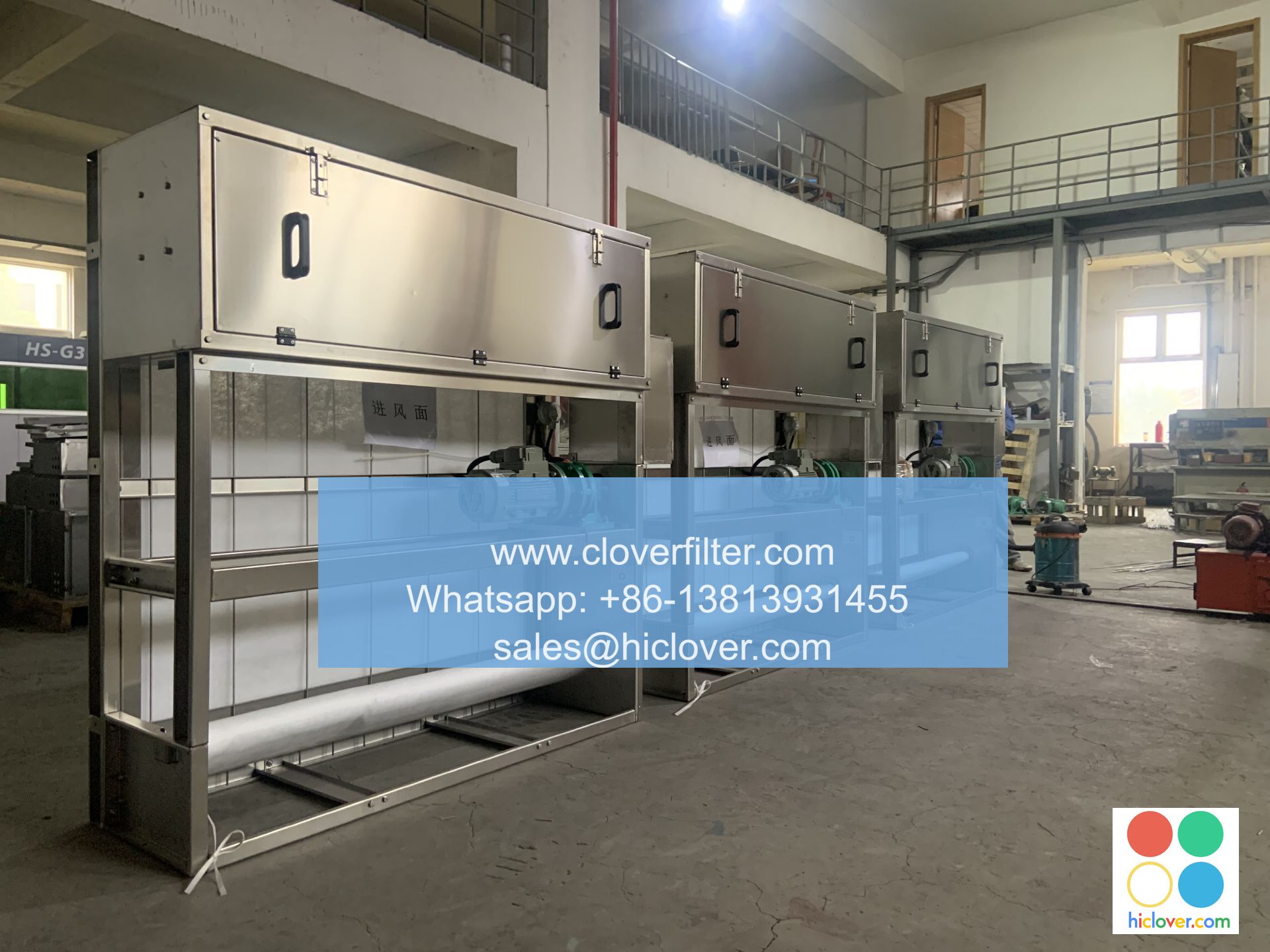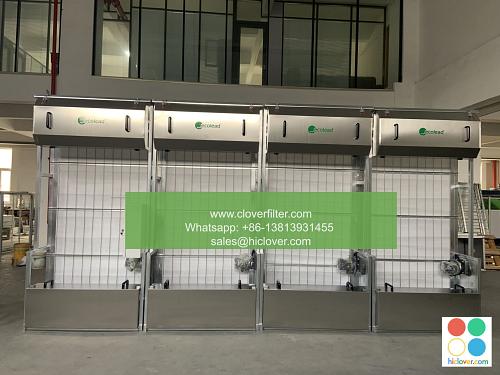Sherbrooke’s Sterile Production Facilities: How Automatic Roll Air Filters Contribute to Regulatory Compliance

In the realm of sterile production, maintaining a controlled environment is paramount to ensure the quality and integrity of products. Sherbrooke, a city renowned for its adherence to stringent standards in pharmaceutical and biotechnological manufacturing, exemplifies the importance of sterile production facilities. A critical component in these facilities is the air filtration system, with automatic roll air filters playing a pivotal role in achieving and maintaining regulatory compliance. This article delves into the significance of these filters, their application areas, and how they contribute to a cleanroom environment that meets the most stringent regulatory requirements.
##
Introduction to Automatic Roll Air Filters
Automatic roll air filters are designed to provide continuous, high-efficiency filtration with minimal maintenance. These filters are crucial in pharmaceutical, biotechnology, and medical device manufacturing due to their ability to remove airborne contaminants, including particles and microorganisms, to levels that meet or exceed regulatory standards. Their automatic roll design ensures that once the filter media reaches a predetermined pressure drop or after a set time, it automatically advances to a fresh section of filter media, maintaining optimal airflow and filtration efficiency.
##
Regulatory Compliance in Sterile Production Facilities
Regulatory compliance is the backbone of sterile production facilities. Agencies such as the Food and Drug Administration (FDA) in the United States, the European Medicines Agency (EMA) in Europe, and Health Canada set stringent guidelines to ensure products are manufactured in environments that prevent contamination. One key aspect of these guidelines is the control of airborne particles in cleanrooms. ISO 14644-1:2015, which classifies cleanrooms based on the concentration of airborne particles, serves as an international standard. Automatic roll air filters are indispensable in achieving these cleanliness levels by providing a consistent and reliable method of removing airborne contaminants.
##
Application Areas of Automatic Roll Air Filters
The application of automatic roll air filters extends across various industries and environments where sterile or controlled environments are required:
– Pharmaceutical Manufacturing: For the production of drugs, vaccines, and other pharmaceutical products, maintaining a sterile environment is critical. Automatic roll air filters help in controlling the level of airborne particles and microorganisms, thereby protecting the products from contamination.
– Biotechnology Facilities: Biotech research and production involve working with living organisms and require strict control over the environment to prevent contamination and ensure the integrity of biological products.
– Medical Device Manufacturing: The manufacturing of medical devices, especially implantable devices, requires a controlled environment to prevent contamination. Automatic roll air filters are essential in maintaining the cleanliness required in these facilities.
– Food Processing: In facilities where food products are processed, especially those requiring a high level of sterility like infant formula or ready-to-eat foods, automatic roll air filters can help control airborne contaminants, reducing the risk of product contamination.
##
Benefits of Automatic Roll Air Filters in Regulatory Compliance
The use of automatic roll air filters in sterile production facilities offers several benefits that directly contribute to regulatory compliance:
– Continuous Filtration: Ensures consistent air quality by maintaining optimal filtration efficiency without the need for manual intervention.
– Reduced Maintenance: Automatic advancement of filter media reduces the frequency of maintenance, minimizing downtime and the risk of human error or contamination during filter changes.
– Improved Air Quality: High-efficiency filtration provides a cleanroom environment that meets or exceeds regulatory standards for airborne particle concentrations.
– Enhanced Product Safety: By controlling airborne contaminants, these filters play a critical role in ensuring the safety and quality of products manufactured in sterile production facilities.
##
Conclusion
In the context of Sherbrooke’s sterile production facilities, automatic roll air filters emerge as a vital component in the pursuit of regulatory compliance. Their ability to maintain a controlled environment, through efficient and continuous filtration, ensures the manufacture of high-quality products that meet the stringent standards set by regulatory agencies. As industries evolve and regulatory requirements become more stringent, the role of technology such as automatic roll air filters will continue to grow, underlining their importance in the sterile production landscape.

